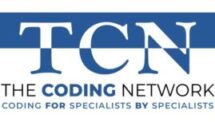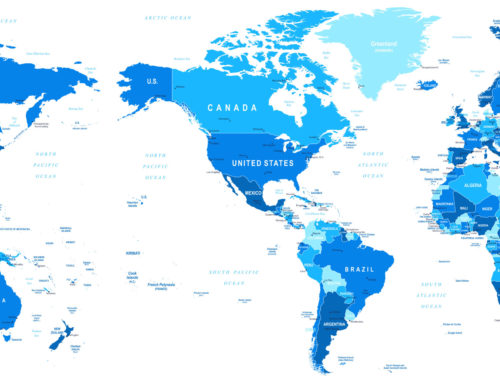Amid the complex labyrinth of healthcare administration, one area stands as a beacon of efficiency and cost-effectiveness—outsourcing medical coding. It brings an exhaustive list of benefits ranging from unburdening clinicians, reducing compliance exposure, minimizing claim denials, and optimizing revenue capture. This post dives into the compelling reasons why outsourcing medical coding can improve operations, maximize accuracy, ensure compliance, and drive growth.
Outsourcing medical coding is a strategic move that offers numerous advantages to healthcare providers. By partnering with The Coding Network, healthcare organizations can unlock benefits that contribute to their overall efficiency and profitability.
How Does it Work?
We are now in the era of electronic medical records (EMR’s) and a high-speed internet. Our coders will use a HIPAA secure VPN for remote access to your EMR. With over 550 active clients each month, we are “power users” of Epic, Cerner, eClinicalworks, Athena, and essentially all of their competitors.
Your practice will be assigned coders according to your physicians’ clinical specialties. If you are part of a multispecialty group practice, there will likely be a team of multi-specialty coders working for you, all coordinated by one of our Client Service Managers.
These specialty-specific coders will remotely read every word of your visit note or op report and then select the separately billable CPT procedure codes for your professional services. If indicated by your medical record, they will apply modifiers to the appropriate CPT codes, and then link each to its documented ICD-10 diagnostic code(s.) Before they hit the “save” button, they will check the various payer-appropriate edits (i.e., Medicare’s National Correct Coding Initiative, state Medicaid or Workers’ Comp rules, etc.) to assure compliance with applicable unbundling and other regulations.
With our coder’s push of the “Save” button, your services will be immediately billed.
How Long Does It Take?
Our turnaround time is sometimes one-day, but we staff each client in anticipation two-to-three business days to complete your coding. Of course, if your practice has a significant backlog, it may take additional time to clean-it-up. Since our company and our individual coders are paid on a per-encounter or per-operation basis, it is in our interest to stay up-to-date. It is our Client Service Manager’s responsibility to make sure we stay current; if necessary, we assign more coders to accomodate your growth.
Why Is Clinical Specialization Important?
What sets The Coding Network apart is its utilization of proficiency-tested specialty-specific certified coders. These professionals possess up-to-date certifications and extensive experience in accurately assigning appropriate codes to medical procedures and services. Their expertise ensures compliance with coding guidelines and regulations, minimizing the risk of denials or rejections. With their specialized knowledge, outsourced coders can navigate complex scenarios related to specific specialties or insurance requirements, which may otherwise be challenging for in-house teams.
The Coding Network has built a team of specialty-specific coders and auditors with single-specialty expertise in the entire spectrum of medical and surgical services. All of our more-than-800 coders and auditors live-and-work in the United States of America; we use absolutely no offshore workers of any kind. All are credentialed and each is an expert in a specific clinical specialty. All are certified by at least one of the industry’s major credentialing organizations (AHIMA or AAPC.) Many have multiple certifications and some are also licensed clinicians.
We draw our coders and auditors from all 50 states, so we are not constrained by the limits of the talent that might reside in just one locality. We are not in the business of training new coders so our clients are not faced with the risks and costs (in terms of potential lost revenue) due to a new coder’s “learning curve” for a specialty. We are not vertically integrated like those companies that created their own in-house vocational schools to teach coding, proctor the certification tests, and then offer job placement to their freshly-minted coders.
Unlike many of our competitors, we require coders to have at least three years’ experience coding in a single clinical specialty before they can even be considered as a coder, and auditors must have five years, just to be able to take our proficiency tests.
We only allow our coders and auditors to work in specialties in which they demonstrate expertise by passing one (or more) of our proprietary and very demanding 58 different specialty-specific proficiency tests. To us, a coding certificate is only an entry-level credential; it means the individual knows “a little bit about a lot of clinical specialties.” Instead, we insist that our coders know “a lot about just one specialty.” Coding is so complex that there is no way anyone can know enough to avoid inadvertently violating all the laws, rules and regulations. Merely passing a test to get certified does not mean that one has the skills or the precision fund-of-knowledge required to accurately code for tertiary specialists. To become a certifiied coder requires just a 70% on a multiple-choice test. Our 58 different specialty-specific proficiency tests are real deidentified visits and operations pulled from our specialist-clients and are significantly more rigorous than the basic credentialing exams. Our Quality Assurance programs test our coders and auditors quarterly to assure our clients with accuracy.
The synergy of our recruitment requirements, specialty-specific proficiency testing, accuracy monitoring and mentoring, our ongoing Q/A testing, and the fact that no TCN client has ever had to pay a penny in compliance fines or recoupments for any of our coding gives us the confidence to offer our clients a money-back accuracy guarantee.
How Can TCN’s Outsourced Remote Coding Cost Less?
There are a number of elements to answering this question. When healthcare providers outsource their medical coding needs, they gain access to a pool of skilled and certified coders without the burden of hiring in-house employees. This can lead to significant cost savings as outsourcing tends to be more cost-effective compared to maintaining an internal coding department.
By partnering with The Coding Network, providers not only save on salaries, taxes and benefits (i.e. health insurance and PTO,) space, software subscriptions, computers, parking fees, etc., but also avoid hiring challenges such as recruiting qualified coders and dealing with high turnover rates in the industry. Furthermore, outsourcing to TCN allows for consistent daily coverage, regardless of fluctuations in workload or absences.
Coding accuracy will significantly reduce denials from payers, the cost of recoding and rebilling, and payment delays.
Accuracy demands coder specialization. For large multi-specialty practices, this generally requires a dedicated coding department. With the multitude of different specialties, this can call for quite a few different coders. Supervising them is a necessity, often done by one of the coders and taking up much of his/her time. Outsourcing to TCN eliminates this expense.
We charge on a per-visit or per-operation basis. Our clients only pay for exactly what they need. You do not have to pay a coder’s salary when a doctor is on vacation or away attending professional conferences.
Growth by adding more doctors might push the current coding staff to use overtime or to push for a new hire, but the incremental volume from the new providers might not be enough to warrant an additional coder. Outsourcing to TCN eliminates the need for overtime and “underemploying” a new coder with lower level tasks to fill his/her time.







